
Stating that they are witnessing good demand as well as interest for Driver Status Monitoring (DSM) cameras, Vanesh Naidoo, Founder & CEO, Safe Cams Digital Eye Solutions Pvt Ltd (SCDES), mentioned, “The ability of these cameras to detect sleepy and distracted drivers and then alert them within three seconds is game-changing.” “They, as a safety solution, are highly conducive to reducing road accidents in India, where around 38 percent of all road accidents are attributed to drowsy driving,” he added. Claiming to be the first company in India to introduce DSM cameras, Naidoo stressed on fuel sensors that can connect to cameras and stream fuel information via 4G connectivity. “The driver reports that come out of this are helping companies save up to 20 percent of fuel costs,” he informed. “This,” he quipped, “is proving to be of much benefit to the fleets at a time when fuel costs have risen sharply.” Present in the aftermarket largely, SCDES is a young company. It was established in 2019 even though the groundwork began almost a year before. “The thought of entering this field was born from the high road fatalities in India,” averred Naidoo.

Cameras as road safety solutions
Pointing at the World Bank Report in 2020, which states that India accounts for 11 percent of global road accident victims while having only one percent of the world’s vehicular population, he said, “A majority of these deaths on roads are needless and can be avoided.” Of the opinion that speeding and drowsy driving account for close to 80 percent of road accidents, he explained, “The technologically advanced road safety solutions such as DSM and Advanced Driving Assistance system (ADAS) are instrumental in preventing accidents before they occur.” “The video footage available from the cameras onboard a vehicle helps analyse and hence understand its causes and find way to avoid them,” he remarked. Informing that his company specialises in two broad categories, consumer dash cams for individuals who own one or two vehicles and fleet solutions that cater to transport fleets and commercial operators, Naidoo explained, “Our Mobile Digital Video Recording (MDVR) systems can record on up to eight cameras per vehicle.”

Fleet safety solutions
The MDVR systems cannot just record on up to eight cameras per vehicle, they can store up to 4 TB of data for a longer period of reference and study. Naidoo explained, “Capable of incorporating features like GPS, Wi-Fi, 4G and various sensors (including temperature sensors in case of the carriage of perishable goods in a refrigerated container), tyre pressure sensors and fuel sensors), the MDVR systems allow live tracking and video streaming via 4G connectivity of any vehicle in the fleet.” Offering advanced technology DSM and ADAS compatible cameras that use Artificial Intelligence (AI), SCDES, said Naidoo, is in talks with bus transport companies for the DSM – with fuel transport vehicle fleets to install explosion-proof cameras and with commercial driving training institutes to help drivers understand the key dangers they face on the road and how to mitigate them. Assembling its consumer dash cameras at its facility at Pune, the company is working on localisation. Some electronic parts are not manufactured locally, according to Naidoo. The current R&D setup of SCDES tests various components of the camera and camera-based safety solutions like lenses, chipsets, low-light sensors etc. The setup also carries out tests in the area of successful configuration and suitability of usage under Indian conditions. “Our R&D setup has helped us to arrive at some unique solutions for local market requirements,” remarked Naidoo.
Traction in market segments
Finding good traction in various market segments including cold chain transportation where cameras and sensing solutions aid the maintenance of the right temperatures, SCDES has achieved good traction in various other market segments as well. “Hyundai India is using our 4G cameras in their test vehicles to ensure testing and reporting as per the guidelines. Our solutions are also being used by the armed forces and municipalities,” stated Naidoo. Revealing that India is expected to follow European Union where reports suggest DSM and ADAS cameras to be mandatory from 2026, Naidoo concluded, “So far, there are no legal requirements for cameras to be used in any vehicular segments as per the law in India. This may however change sooner than later.”
Interview: Vanesh Naidoo, Founder & CEO, Safe Cams Digital Eye Solutions Pvt Ltd.

1. Which automotive segments do the company’s products cater to?
Our camera systems can cater to nearly all major automotive segments from bus transportation, goods transportation, employee transportation, taxis, school transportation and so on. With the ability to connect temperature sensors to our devices, Safe Cams’ devices can also be used for cold chain transport companies to ensure their temperature ranges are maintained.
2. Are the company’s products found in the aftermarket or supplied to OEMs as well?
At the moment, our products are found in the aftermarket.
3. Any institutions that the products have found favour with?
Hyundai India is using our 4G cameras in their test vehicles to ensure testing and reporting is performed easily and per guidelines. The Indian Army has also purchased our dash cameras, and they are happy with the video quality of our devices. We also have supplied to international clients in Fiji and Kuwait. Safe cams also won the Dombivali-Kalyan Smart City contract to fit 4G dash cameras into the police vehicles; this is the first-time dash cameras have been fitted in police vehicles in Maharashtra.
4. How are these products important in terms of safety, security and performance of a commercial vehicle or a fleet? What kind of cost savings could a fleet or trucker look at from the use of your product?
Our Advanced AI cameras can prevent accidents before they occur – thereby reducing accidents that would happen (and the less to high costs involved therein) mostly due to drowsy driving and speeding. Around 80 percent of accidents are caused because of these two factors in India.
Cameras act as a natural deterrent to prevent theft/stealing as people know they are being watched. In the 2019 BSI & TT Club report, India accounted for 64 percent of Asia’s cargo theft. Our fuel sensors and driving behaviour reports and rankings can help save up to 20 percent of a company’s fuel costs and lead to savings of several thousand for a truck or a fleet owner. Our products have an average ROI of 120 percent in year one after buying (with the average payback period being 10 months on the cost of our solution). These savings come from a reduction in accidents (both in insurance costs and with the vehicle being able to be utilised for longer), reduction in theft and fuel savings.
5. How is the market for your products picking up post the pandemic-led disruption?
We are experiencing an increase in enquiries about our cameras and how these can make road journeys safer. I think the pandemic has made more people risk adverse or at least risk aware, and hence safety products are seen as a priority now. Given that the number of road deaths in 2019 being even higher than the total number of Covid-19 deaths in 2020, this shows and is making people realise how poor road safety scenario is in India, and the urgent need to improve the same.
6. The pain the Covid-19 pandemic caused to the company?
The Covid-19 pandemic hit us hard. We had a few deals put on hold as companies were not willing to spend on capex due to the uncertain market situation. Our consumer range could not be sold much as people were working from home and vehicles were parked off due to lockdown restrictions. Once the first wave of lockdown ended, we saw a bit of an upswing, only to be replaced with another lockdown months later. We have had to look at working capital issues and have tried to keep smaller inventory to combat the uncertainty Covid brought.
7. What kind of growth do you anticipate? Will it be in any particular product offering or spread across?
I think once people become highly aware of the advanced nature of the product and the benefits it offers, we will see a sharp growth in the dash cam market. India is the fifth-largest automobile industry in the world, but less than one percent of people use a dash camera compared to other countries like Singapore, UK and Dubai where between 10-25 percent of drivers own a dash camera. Currently, there is a huge gap in the market, which we at Safe Cams want to fill.
8. What change in the automotive landscape do you anticipate, which will provide your company stronger growth traction?
In the future, road safety will become an extremely important factor for the government and stricter enforcement of traffic rules will lead to a high adoption of dash cameras being used. New technologies like DSM that can prevent accidents will become mandatory on commercial vehicles, following the EU and America. Further, video analytics will become more and more important and 5G networks will mean devices can communicate with each other faster – and this will mean we can reduce the human involvement or reduce the reaction times to avoid an accident.
- January 2026
- sales
- Hero MotoCorp
- TVS Motor Company
- Royal Enfield
- B Govindarajan
- Eicher Motors
- Mahindra & Mahindra
- Tata Motors Passenger Vehicles
- Hyundai Motor India
- Toyota Kirloskar Motor
- JSW MG Motor India
- Kia India
- Tarun Garg
- Nalinikanth Gollagunta
- Atul Sood
- Tata Motors Commercial Vehicles
Indian Automotive Sector Starts 2026 With Robust January Wholesales Growth
- By MT Bureau
- February 01, 2026
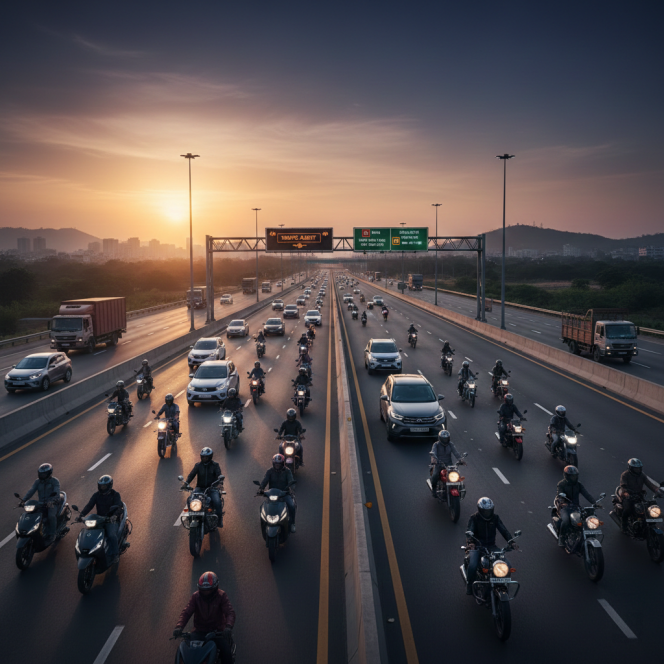
The Indian automotive industry has commenced the 2026 calendar year on a high note, with automakers across two-wheeler, passenger vehicle and commercial vehicle segments reporting significant YoY wholesale growth for January. The performance reflects a resilient domestic market and a burgeoning recovery in international exports.
The two-wheeler sector saw massive volume gains, spearheaded by Hero MotoCorp, which recorded dispatches of 557,871 units, marking a robust 26 percent growth compared to 442,873 units in January 2025. This performance marks the company’s 25th consecutive year of market leadership. TVS Motor Company followed with a 30 percent increase in domestic two-wheeler sales, reaching 383,262 units, while its electric vehicle (EV) wing grew by 50 percent to 37,756 units.
Royal Enfield achieved a significant milestone, surpassing 1 million year-to-date sales in just 10 months, posting January sales of 104,322 motorcycles – a 14 percent YoY increase, which includes 93,781 units in the domestic market and 10,541 units exported.
B. Govindarajan, Managing Director, Eicher Motors and CEO, Royal Enfield, said, "The new year has begun on a positive note for Royal Enfield – extending the strong momentum from the previous quarter and marking four consecutive months of healthy double-digit growth. We have crossed 1 million motorcycle sales in this financial year across the globe and also crossed 100,000 motorcycle sales in exports."
In the passenger vehicle (PV) segment, Mahindra & Mahindra reported a 25 percent growth in utility vehicles, selling 63,510 units domestically. Tata Motors Passenger Vehicles saw a dramatic 47.1 percent rise in total sales (including EVs) to 71,066 units.
Hyundai Motor India achieved its highest-ever monthly domestic sales of 59,107 units, up 9.5 percent, while Toyota Kirloskar Motor registered 30,630 units, representing a 17 percent YoY growth. Kia India also started the year strong with 27,603 units, a 10.3 percent increase and JSW MG Motor India grew 9 percent with 4,843 wholesale units.
Honda Cars India reported domestic wholesales of 6,193 units and 748 units in exports. These figures follow a January 2025 performance where the company registered 7,325 domestic units and 4,979 units in exports.
The current sales volume is supported by demand for the Honda Amaze, alongside steady contributions from the City and Elevate models.
Tarun Garg, MD & CEO, Hyundai Motor India, said, "January 2026 marks a defining chapter in Hyundai Motor India’s journey. Achieving our highest-ever monthly domestic sales of 59,107 units... reflects not only Hyundai’s brand leadership but also the collective strength of our people, partners and customers."
Nalinikanth Gollagunta, CEO, Automotive Division, Mahindra & Mahindra, said, "Building on the strong momentum of last year's performance, we began the year on a strong note in January... On 14th January, we opened bookings for XUV7XO and XEV 9S clocking 93,689 bookings for a booking value of INR 205 billion - a record-breaking milestone in just 4 hours."
Atul Sood, Senior Vice-President, Sales & Marketing, Kia India, said, "The encouraging start to 2026 reflects the continued trust customers place in the Kia brand. The positive response to the new-generation Seltos, steady demand for the Sonet, and growing popularity of the Carens Clavis and Clavis EV, underline the strength and balance of our portfolio."
Kunal Behl, Vice President, Marketing & Sales, Honda Cars India Ltd, said: “The year has begun on a strong note, supported by a healthy sales momentum. The Honda Amaze continues to bring in strong demand for its value for money offering along with the City and Elevate that contribute steadily to the overall business. We remain confident of sustaining this positive momentum in the coming months.”
The commercial vehicle (CV) sector also demonstrated strength, particularly in heavy and light cargo segments. Tata Motors reported total CV sales of 38,844 units, up 29.1 percent from 30,083 units in the previous year. Within this, Heavy Commercial Vehicle (HCV) trucks saw the sharpest rise at 41.2 percent. Mahindra’s domestic CV sales grew by 22 percent to 27,656 units, driven largely by the LCV 2T–3.5T category.
Union Budget 2026-27: Supply Chain Resilience, Infra Push To Drive Auto Industry Growth
- By MT Bureau
- February 01, 2026
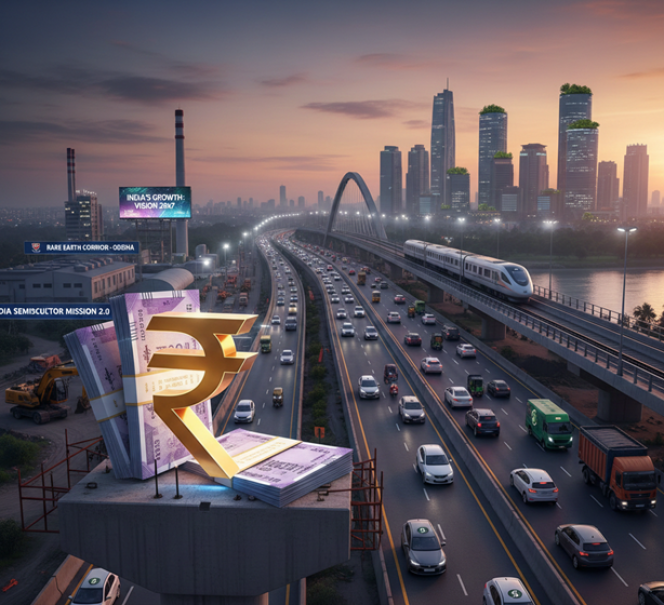
In a strategic pivot from direct consumer subsidies to foundational supply-chain resilience, the 2026-27 Union Budget, presented by Finance Minister Nirmala Sitharaman, focuses on bolstering the structural integrity of the Indian automobile industry.
A cornerstone of this year’s fiscal policy is the massive infrastructure and logistics push, highlighted by the development of the Dankuni-Surat Dedicated Freight Corridor and the operationalisation of 20 new national waterways. These initiatives, alongside a coastal cargo promotion scheme aiming to double the share of waterway freight to 12 percent by 2047, are designed to drastically lower logistics costs and ease the movement of components across the country.
Simultaneously, the government is reinforcing the industry's backbone by establishing a INR 100 billion SME Growth Fund to provide long-term capital for auto-component MSMEs, while enhancing liquidity through the Trade Receivables Discounting System (TReDS) and easing regulatory hurdles via ‘Corporate Mitras’ in Tier-II and Tier-III cities.
To secure the future of high-tech mobility, the Budget further expands the India Semiconductor Mission (ISM 2.0) to include domestic equipment manufacturing and chip IP, while nearly doubling the allocation for the Electronics Components Manufacturing Scheme to INR 400 billion. This technological drive is matched by a robust commitment to the electric vehicle (EV) ecosystem, specifically through the creation of ‘rare earth corridors’ in Odisha, Kerala, Andhra Pradesh and Tamil Nadu. These hubs will provide plug-and-play ecosystems to insulate the industry from global mineral volatility and supply curbs. Complementing this is a series of customs duty exemptions on capital goods used for lithium-ion cell manufacturing and critical mineral processing, which is expected to drive down battery costs and encourage local gigafactory expansion. Finally, for the clean energy segment, the full excise duty exemption on the biogas portion of blended CNG offers immediate relief to fuel prices, marking a comprehensive effort to foster a self-reliant, sustainable, and cost-competitive automotive landscape in the wake of previous GST reforms.
Motul Charts Future Of Mobility With Advanced Fluids At SIAT Expo 2026
- By MT Bureau
- January 31, 2026
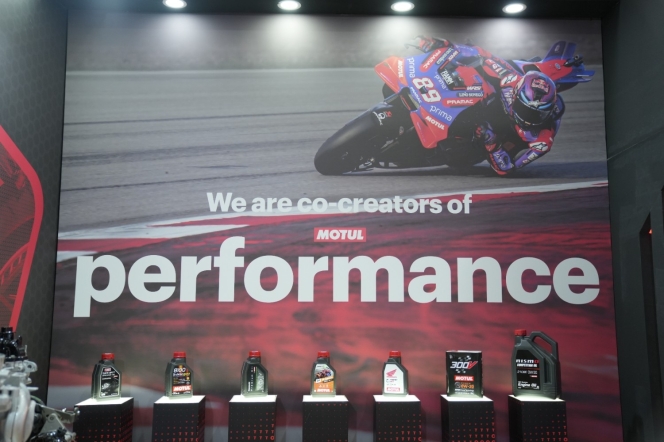
Motul India presented a comprehensive vision for the future of automotive fluids at SIAT Expo 2026, centred on innovation, sustainability and supporting the industry’s technological transition. The company’s exhibition was built around the event’s core theme of pioneering safe and sustainable mobility, demonstrating a strategic commitment to evolving alongside new vehicle architectures.
A cornerstone of this vision is the development of fluids for new propulsion systems. A keynote address by Dr Julien Plet, Global Head of R&D, elaborated on the critical role of innovative fluids for next-generation mobility. The company showcased its E-Gen series, engineered for the thermal management of electric vehicle components like motors, batteries and power electronics, positioning it as a critical solution for evolving electrified mobility. Simultaneously, for alternative fuels, Motul presented specialised lubricant formulations for hydrogen internal combustion engines, reflecting early and active research into diverse energy sources. This dual focus underscores a readiness to support the industry’s broad technological transition.
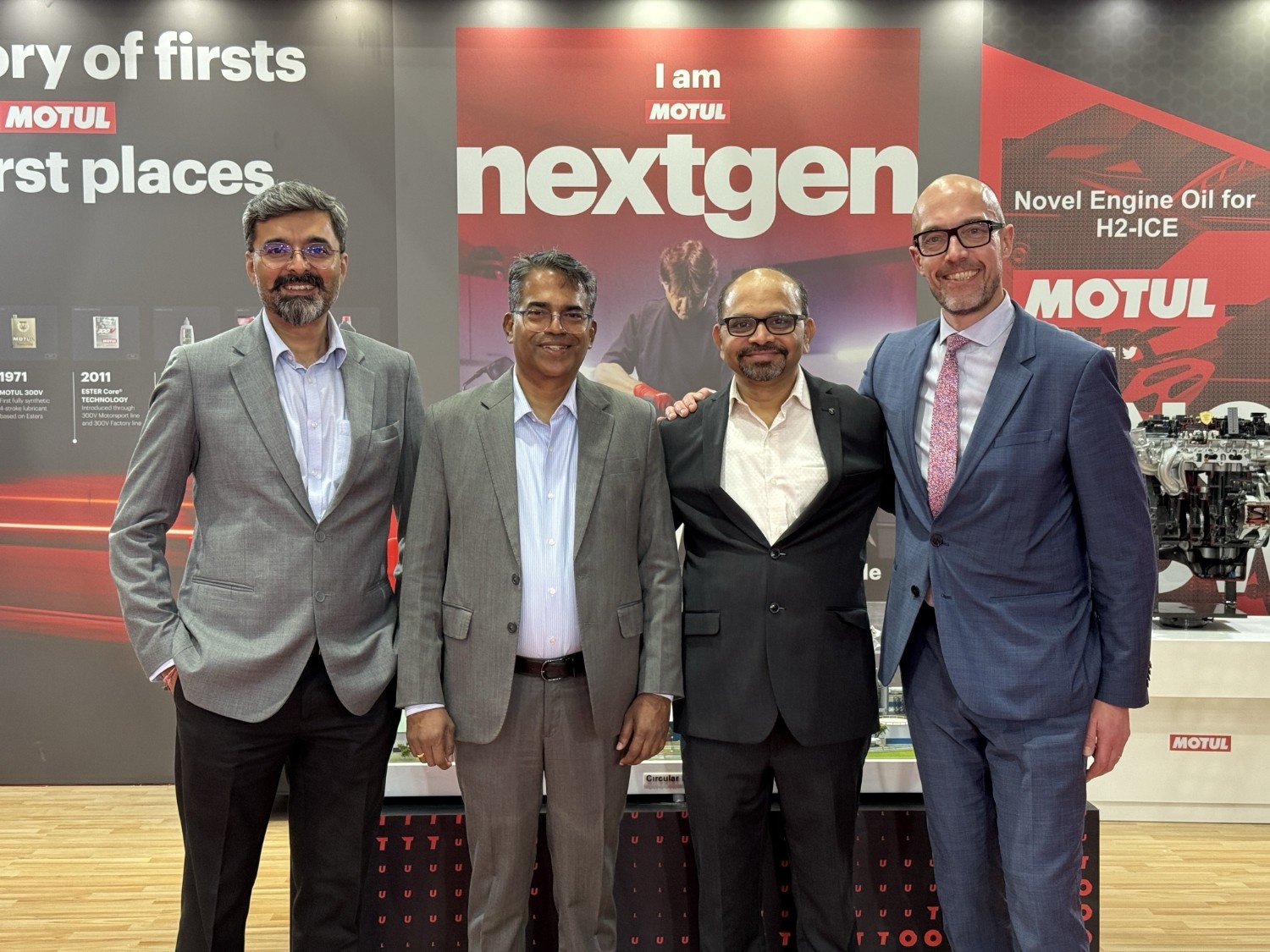
Further solidifying its technical credibility, Motul emphasised its race-to-road development philosophy. The exhibit featured OEM-validated products, including a lubricant with formal Mercedes-Benz approval and another born from collaboration with Toyota Racing Development. These examples illustrate how the company leverages the extreme demands of motorsport as a dynamic proving ground for future commercial technologies, rather than for immediate market launch.
Integral to its presentation was a strong sustainability narrative, exemplified by the NGEN lubricant range. This product line utilises base oils derived from re-refined materials, embodying circular economy principles and a long-term commitment to reducing environmental impact through responsible resource use.
Ultimately, by participating in the expo, Motul India reinforced its role as an innovation-led partner to the automotive ecosystem. With a robust global research backbone and deep industry relationships, the company showcased its structured approach to developing high-performance, sustainable fluids tailored to meet the specific demands of the Indian market as it advances.
Dr Plet said, “Motul’s research and development teams across geographies continue to focus on advancing lubricant performance for existing powertrains while developing technologies aligned with future mobility needs and local market conditions.”
Nagendra Pai, CEO, Motul India & South Asia, said, ‘’SIAT Expo is a key platform for future mobility, and Motul is proud to showcase its global innovation strength in India. By combining advanced technologies with local adaptability, Motul is ready to lead solutions across electrification, sustainability and alternative fuels.”
India-EU Ink Historic Trade Deal To Reshape Global Automotive Landscape
- By Nilesh Wadhwa
- January 27, 2026
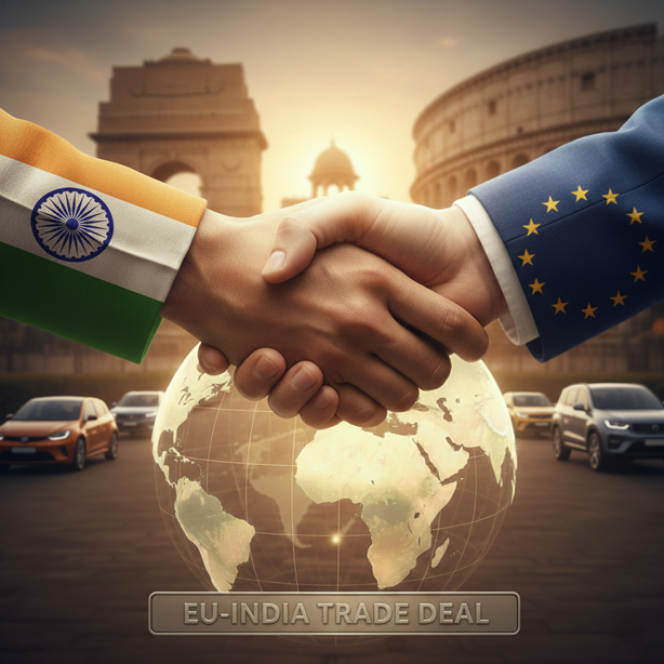
In a move that signals a seismic shift in global trade dynamics, the European Union and India today concluded negotiations for a historic and ‘commercially significant’ Free Trade Agreement (FTA). As the largest deal ever brokered by either side, the pact creates a massive free trade zone encompassing 2 billion people and the world's second and fourth largest economies.
While the agreement spans sectors from agriculture to pharmaceuticals, it is the automotive industry that stands as the centrepiece of this industrial realignment.
Cracking the 110% tariff wall
For decades, European automakers have struggled against India’s formidable trade barriers. Under the new agreement, these hurdles are set to crumble. India has committed to a radical reduction in car tariffs, which currently sit at a staggering 110 percent. According to the official release, these duties will be gradually slashed to as low as 10 percent.
Furthermore, the deal provides a massive boost to the automotive supply chain. Tariffs on car parts – a critical sector for European manufacturers – will be fully abolished within a 5-to-10-year window. This move is expected to integrate Indian and European manufacturing hubs more closely than ever before.
European Commission President Ursula von der Leyen hailed the deal as a milestone for rules-based cooperation. "The EU and India make history today. We have sent a signal to the world that rules-based cooperation still delivers great outcomes," she said.
With a population of 1.45 billion and a GDP of EUR 3.4 trillion, India is currently the world’s fastest-growing large economy. This FTA grants European carmakers and industrial firms a ‘privileged access’ that no other Indian trading partner currently enjoys.
Beyond the finished vehicles, the deal addresses the broader industrial ecosystem:
- Machinery & Chemicals: Tariffs of up to 44 percent on machinery and 22 percent on chemicals will be mostly eliminated.
- SME Support: Dedicated contact points will be established to help smaller European component manufacturers navigate the Indian market.
- Intellectual Property: The agreement guarantees high-level protection for designs and trade secrets, providing the legal certainty required for high-tech automotive transfers and R&D investment.
The deal is not merely about volume; it is about the future of mobility. A dedicated chapter on trade and sustainable development focuses on climate change and environmental protection.
To support India’s transition toward sustainable industrialisation – a move critical for the electric vehicle (EV) sector – the EU intends to provide EUR 500 million in support over the next two years. Additionally, a new EU-India platform for climate action cooperation is slated to launch in early 2026, likely serving as a catalyst for joint ventures in green hydrogen and battery technology.
The EU expects the deal to double its goods exports to India by 2032, saving European businesses approximately EUR 4 billion per year in duties.
The path to implementation now moves to the legal and political stage. The negotiated texts will undergo legal revision and translation before being presented to the European Council and the European Parliament for consent. On the Indian side, the agreement will move toward formal ratification.
After nearly two decades of stop-and-start negotiations – beginning in 2007 and relaunching in 2022 – the road is finally clear for a new era of Euro-Indian industrial synergy.







Comments (0)
ADD COMMENT